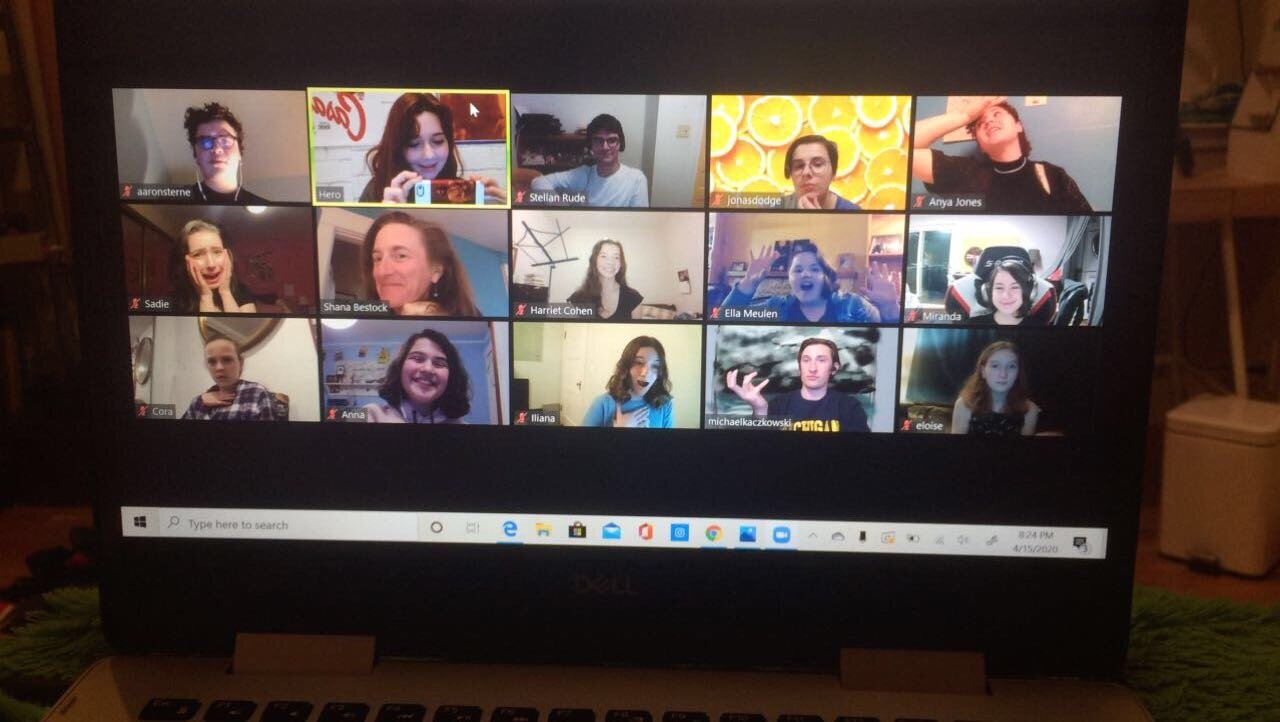Great Teachers Teach Great Anywhere
You're a great teacher. But are you feeling inept in the face of online instruction? Here's a little general motivation to translate how – and why – you teach to digital platforms.
Create Ritual
If you've been teaching a while, you might have forgotten you do this all the time. How do you greet kids as they come into the classroom? How do you close a lesson before moving on? Rituals are everywhere, from how we arrange our desks to how we say “okay!” Those repetitions help ground yourself and your students.
When you move online, you may unwittingly cut out those little rituals. After all, you're learning a whole new technology, and suffering from the self-awareness of seeing yourself on screen. There's a pressure to develop a new Teacher Persona for the screen, as you discover you have a best side and play with uplighting. Uplighting is important, but it doesn't replace your superpowers.
Pretend you're in your classroom for a moment. What's something you do to create a safe, welcoming space? To transition? To frame fun, teamwork, focus? Can you re-create it online? What's a new ritual that you can develop with your students, to honor this new platform?
You can still ask students to take out their pencils or write their name at the top of their paper....even if you then don't do anything with those pencils or that paper!
Positive Feedback
Obviously, no one has forgotten about positive feedback. But I hear from teachers a worry that they aren't giving enough of it online. Why is this?
Much of the feedback you give in a classroom might be non-verbal – and even instinctive. Catching the eye of a student, smiling, leaning into a desk and patting their paper, opening your arms wide to celebrate the energy of the room – these are actions you might not be doing online, and both you and your students miss them.
Your “room” online is like an empty classroom at the start of the school year. In what ways do you set up that real space for positive feedback? Can you replicate any of that online? Hang up posters behind you with positive messages, or use flashcards. While many online platforms have technical tools for feedback, I encourage you to develop your own that feel personal and congruent to your teaching style and classroom needs.
Remember that feedback is also recognition – sometimes students simply need to be seen. Use their names. Move fluidly between individual and group feedback, connecting the room in positive movement. Praise the behavior you want to see – call out their focus, their listening, their engagement, their ability to cope resiliently with the frustrations of working online.
Give yourself some positive feedback. So, you don't feel the great thrills of teaching you feel in the classroom? But you're teaching. You showed up. You connected with students who need you. Amazing. Thank you. Keep going.
Define Behavior
“Focus.” “Listen.” “Respect others.” You probably say one or all of those every day, right? But online - what does that look like? What does it mean to focus? Are you asking for eyes on you, or are you asking for quiet? How will you know if someone is listening – and how do they know if they're listening? Does listening mean understanding, or does it mean being quiet? What does respect look like? Again – think specifically in terms of seeing your students in little virtual boxes. You may have taught them at the beginning of the year the language of classroom behavior – but don't take it for granted this translates to the screen.
The good thing is, everyone will understand if you aren't rushing through the curriculum. So take the time to establish and practice a shared language of behavior expectations online.
Engage students in defining, articulating, and problem-solving this Brave New World.
You don't have to do all this by yourself! Talking about the abnormalities of the situation is really helpful for kids. Share your own insecurities about teaching online. Ask students to help set up rituals, definitions, and provide positive feedback to each other. Ask them what “good behavior” looks like online. Talk to them about distractions: cell phones and family members, pets and music. Talk to them about fears: sickness, loneliness, the uncertain future.
You became a teacher for many reasons, but probably one of them is that you love kids in some specific ways – hanging out with them, listening to their stories, guiding their discoveries, witnessing their challenges and triumphs. Do your own homework – what motivates you as a teacher? What sends you out the door feeling energized for the next day? Are those special moments showing up online? If not – what's one thing you can do in your next lesson to create those special moments, and bring a few of your superpowers into the virtual room?
The author with a few of her students
